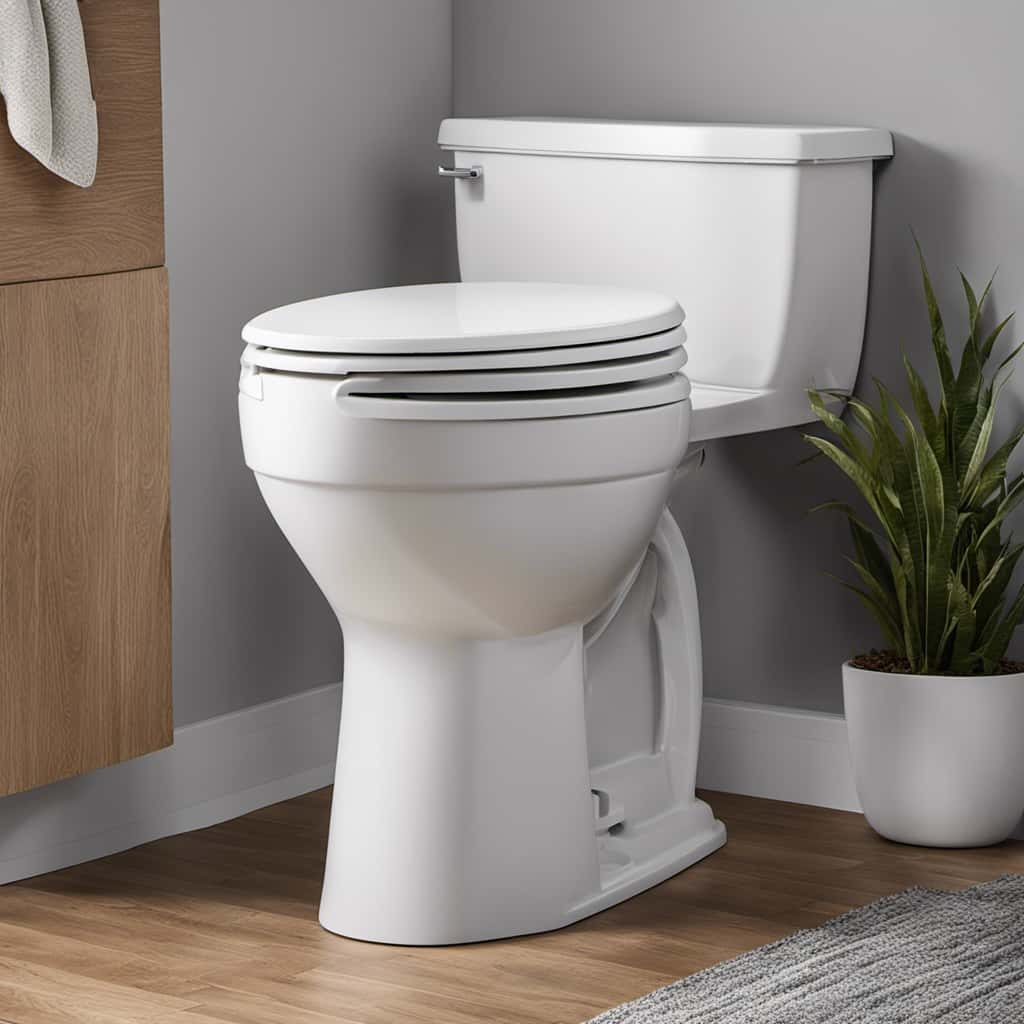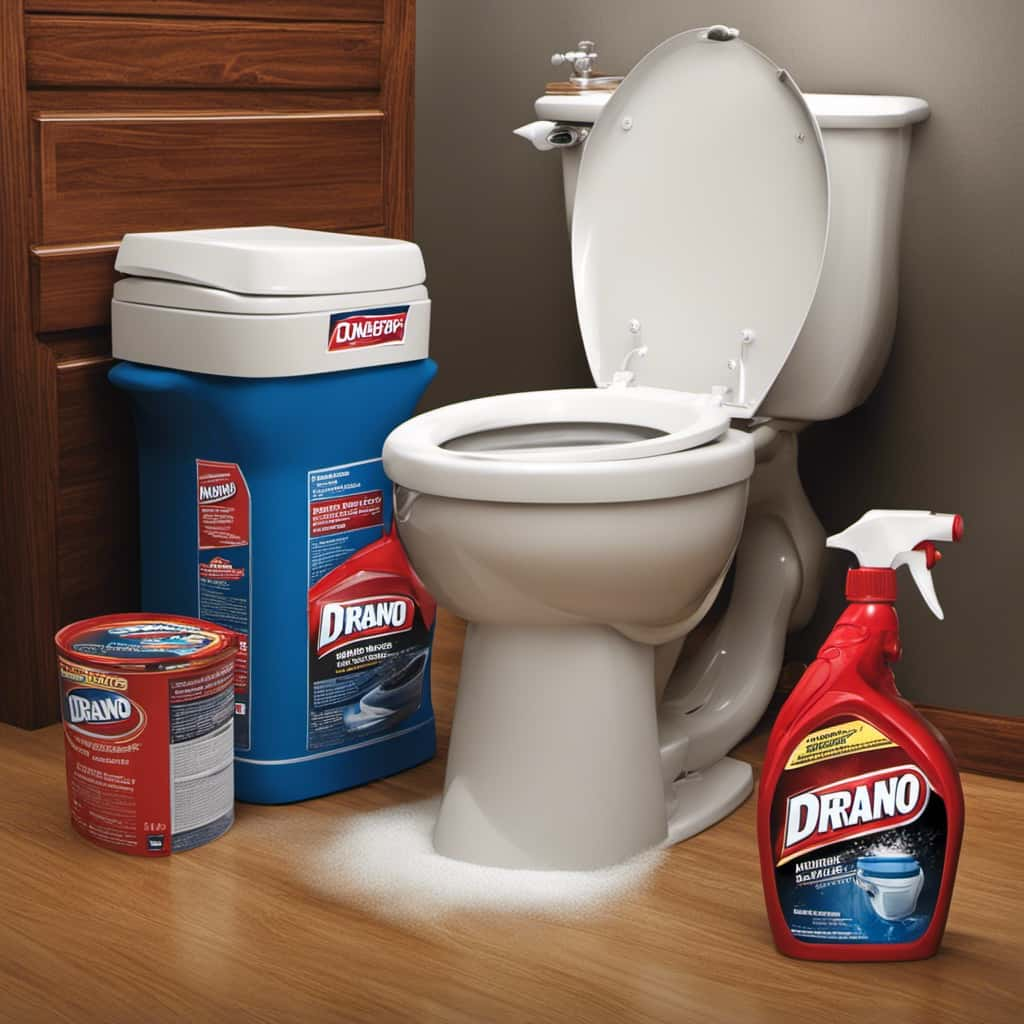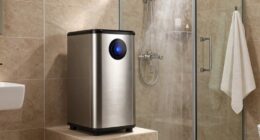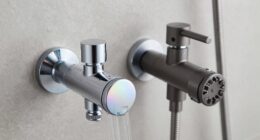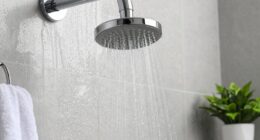Oh, the things we flush down the toilet! It may seem harmless, convenient even, but let us tell you why it’s a terrible idea.
Clogged pipes, costly repairs, environmental pollution, and potential health hazards are just a few of the consequences.
In this article, we’ll delve into the importance of proper toilet etiquette and why you should resist the urge to flush anything but the essentials.
So, buckle up, dear readers, and prepare for a journey into the world of responsible toilet habits.
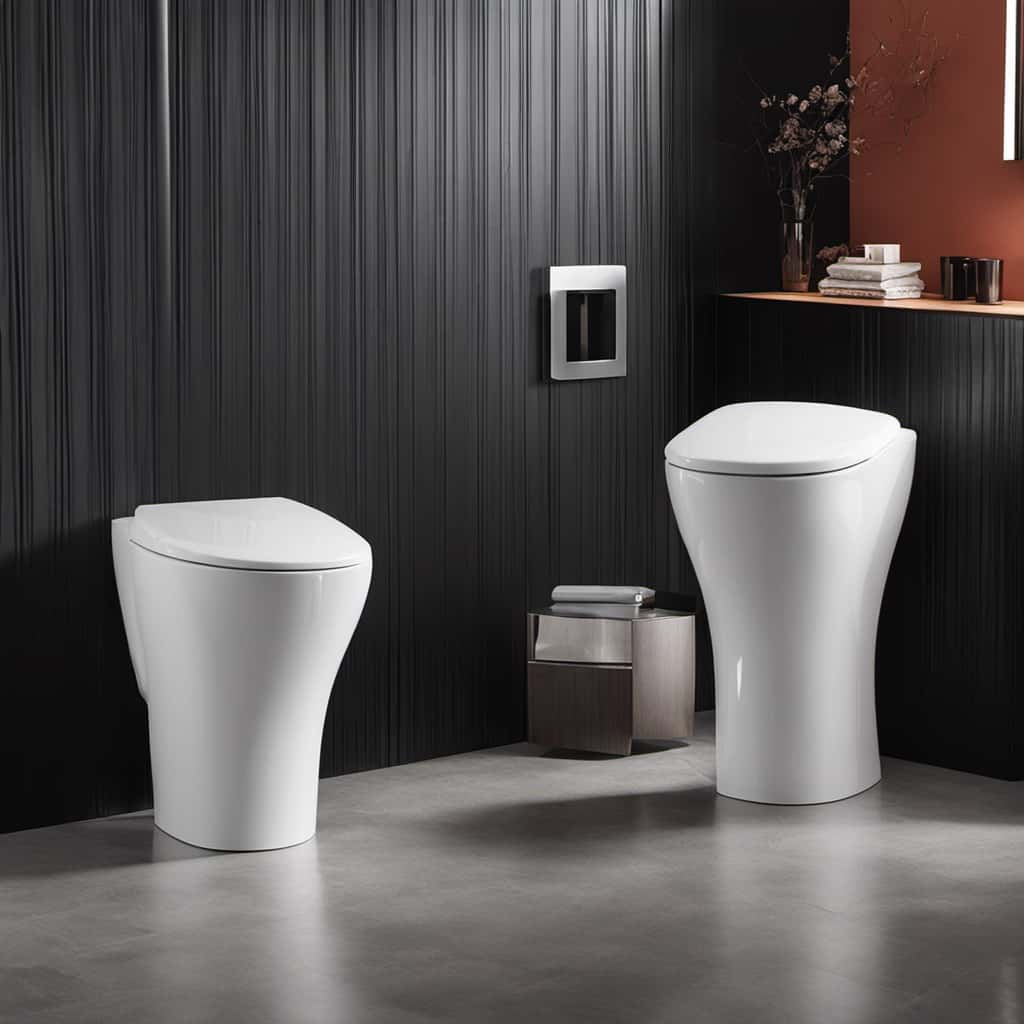
Key Takeaways
- Flushing objects like wipes, cotton balls, or dental floss can cause blockages in the pipes and put strain on the plumbing system.
- Flushing non-biodegradable items wastes water unnecessarily, can contaminate water sources, and harm aquatic life.
- Flushing non-biodegradable items can pose health risks by spreading bacteria and pathogens, and contaminating water sources.
- Adhering to proper toilet etiquette, practicing good hygiene, and considering others’ needs helps prevent clogs, maintenance issues, environmental pollution, and promotes a clean and hygienic environment.
Clogged Pipes and Plumbing Issues
One of the main reasons we shouldn’t flush things down the toilet is because it can lead to clogged pipes and plumbing issues. Flushing objects like wipes, cotton balls, or dental floss can cause blockages in the pipes, resulting in costly maintenance and repairs.
These blockages not only disrupt the smooth flow of water but also put additional strain on the plumbing system. When pipes become clogged, they may need to be cleared using specialized equipment, which can rack up expensive maintenance costs.
Moreover, clogged pipes can lead to sewage backups and overflows, posing health risks and causing further damage to your home. By refraining from flushing inappropriate items, we can prevent clogs, reduce maintenance expenses, and ensure efficient water conservation.
Costly Repairs and Maintenance
When objects are flushed down the toilet, it can result in costly repairs and maintenance due to the potential blockages and damage they can cause. Not only can these objects clog the pipes and cause plumbing issues, but they can also lead to water damage and sewage backup in your home. To give you an idea of the potential costs involved, here is a table showcasing some common toilet-related repairs and their average prices:
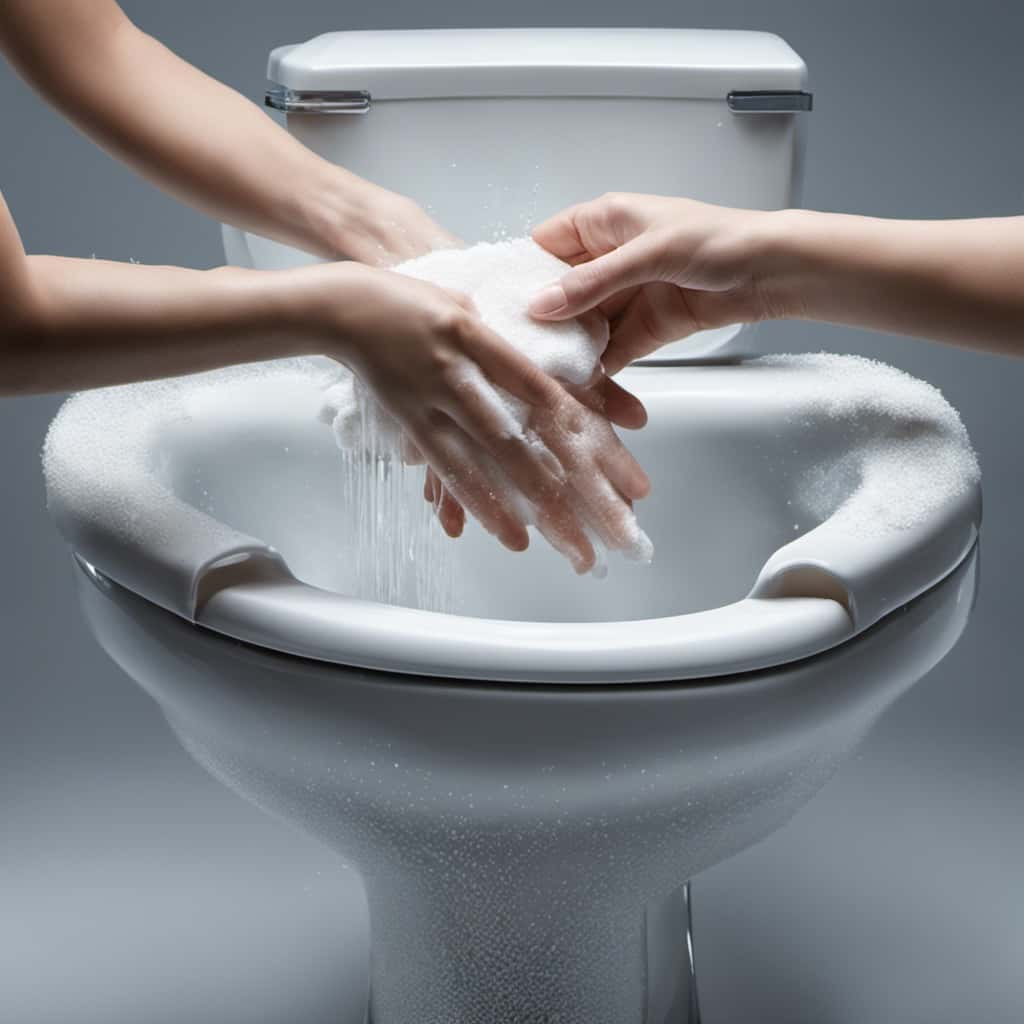
| Repairs and Maintenance | Average Cost |
|---|---|
| Clearing clogged pipes | $150 – $300 |
| Repairing water damage | $1,000 – $10,000 |
| Fixing sewage backup | $2,000 – $5,000 |
| Replacing damaged toilet | $200 – $500 |
As you can see, the expenses can quickly add up. Therefore, it is essential to be mindful of what you flush down the toilet to avoid these costly repairs and maintenance.
Environmental Impact and Pollution
Flushing objects down the toilet can have a significant environmental impact and contribute to pollution. Here are some reasons why it’s important to avoid flushing things down the toilet:
- Water Conservation: Flushing non-biodegradable items wastes water unnecessarily. By only flushing human waste and toilet paper, we can conserve water and contribute to sustainable water management.
- Sewer System Overload: Flushing objects that don’t break down easily can cause blockages in the sewer system. This results in costly repairs and maintenance for municipalities and can lead to sewage backups and overflows, posing health risks to both humans and the environment.
- Water Pollution: Flushed items such as medications, cleaning products, and chemicals can contaminate water sources when they enter rivers, lakes, and oceans. This pollution can harm aquatic life and disrupt ecosystems.
- Microplastics: Many items that are flushed, like wet wipes and sanitary products, contain microplastics. These tiny plastic particles can accumulate in water bodies and be ingested by marine organisms, ultimately entering the food chain.
- Environmental Damage: Flushing non-biodegradable items contributes to landfill waste and increases the demand for raw materials, which can lead to deforestation, habitat destruction, and increased greenhouse gas emissions.
Potential Health Hazards
Continuing from the previous subtopic, our actions of flushing non-biodegradable items down the toilet can pose potential health hazards. One major concern is water contamination. When non-biodegradable items such as plastics, wipes, or medications enter the water system, they can break down into harmful chemicals or microplastics that contaminate our water sources. This contamination can have serious consequences for both human health and the environment.
Furthermore, flushing non-biodegradable items can contribute to the spread of bacteria. Items like tissues or sanitary products can carry bacteria and pathogens that can survive in the water system. These bacteria can then be transmitted to humans through contact with contaminated water or by consuming contaminated food and beverages.

To protect our health and prevent the spread of harmful bacteria, it’s crucial to dispose of non-biodegradable items properly. This means using designated waste bins for these items, rather than flushing them down the toilet. By doing so, we can help maintain the cleanliness and safety of our water sources, ensuring the well-being of both ourselves and the environment.
Importance of Proper Toilet Etiquette
To maintain a clean and hygienic environment, it’s essential that we adhere to proper toilet etiquette, including disposing of waste responsibly and using the appropriate facilities.
Here are some key points to consider regarding proper toilet etiquette:
- Respect social norms: Understanding and following the cultural and social expectations around toilet usage is crucial. This includes flushing the toilet after use and cleaning up after oneself.
- Maintain hygiene: Practicing good hygiene is vital for personal health and the well-being of others. This includes washing hands thoroughly with soap and water after using the toilet.
- Dispose of waste responsibly: Only toilet paper should be flushed down the toilet. Items such as sanitary pads, diapers, and wipes should be placed in the designated trash bins.
- Keep the toilet clean: Leaving the toilet in a clean state after use is a common courtesy. It ensures that the next person can use the facilities comfortably.
- Be mindful of others: Being considerate of others’ needs and privacy in a shared toilet space is important. Avoid excessive noise, respect personal space, and maintain a reasonable amount of time in the restroom.
Frequently Asked Questions
How Often Should I Have My Plumbing System Inspected to Prevent Clogged Pipes?
We should have our plumbing system inspected regularly for preventive maintenance to avoid clogged pipes. It’s important to be aware of signs of plumbing issues, such as slow drains or unusual odors.
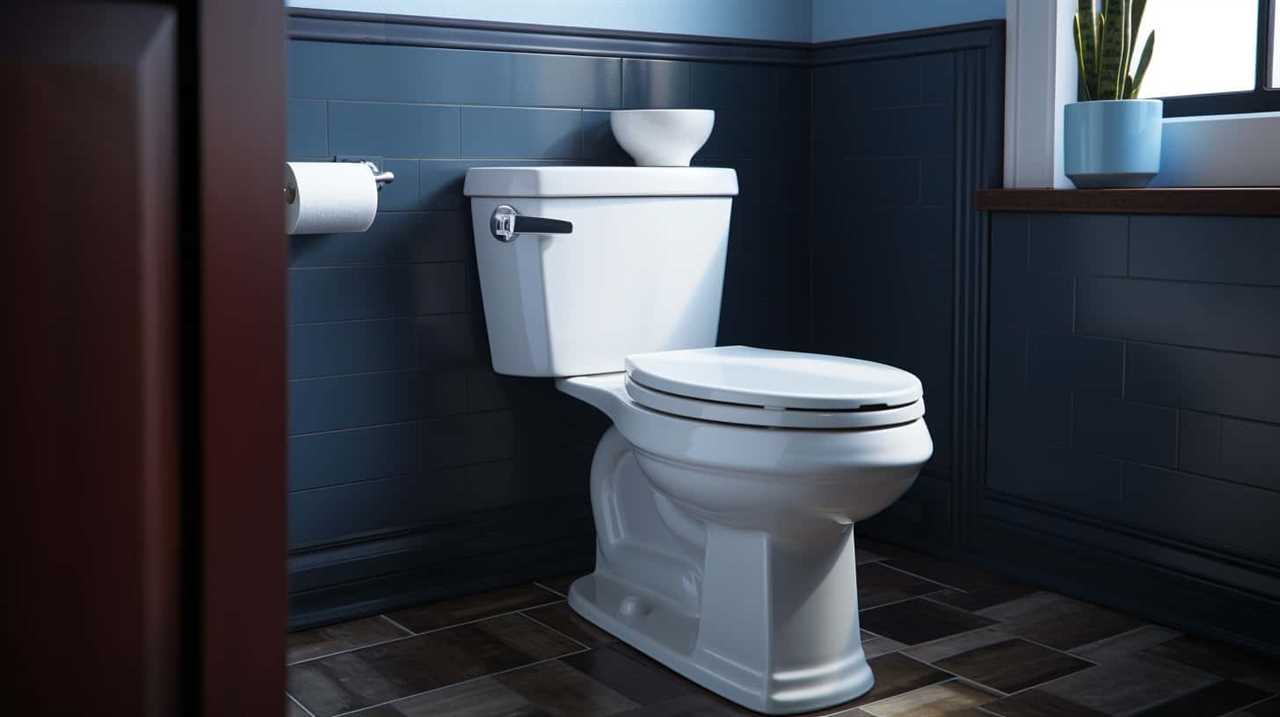
Can Flushing Non-Biodegradable Items Down the Toilet Lead to Sewage Backups in My Home?
Can flushing non-biodegradable items down the toilet lead to sewage backups in our homes? Absolutely. These items can clog pipes, causing blockages that result in nasty backups and costly repairs. It’s best to stick to flushing only toilet paper and waste.
Are There Any Alternatives to Flushing Items Down the Toilet That Are Safe for the Environment?
Eco friendly alternatives exist for reducing toilet waste. It’s important to avoid flushing items down the toilet as it can lead to sewage backups. Instead, consider composting or using designated disposal methods to protect the environment.
What Are the Potential Health Risks Associated With Flushing Certain Items Down the Toilet?
Flushing certain items down the toilet may seem harmless, but it can have potential health risks. From clogged pipes to water contamination, it’s important to understand the potential environmental impact and the importance of proper disposal methods.
How Can Proper Toilet Etiquette Prevent Plumbing Issues and Costly Repairs in the Long Run?
Proper toilet etiquette, such as using toilet paper alternatives and following proper disposal methods, can prevent plumbing issues and costly repairs in the long run. It ensures our plumbing system functions smoothly and avoids unnecessary clogs.
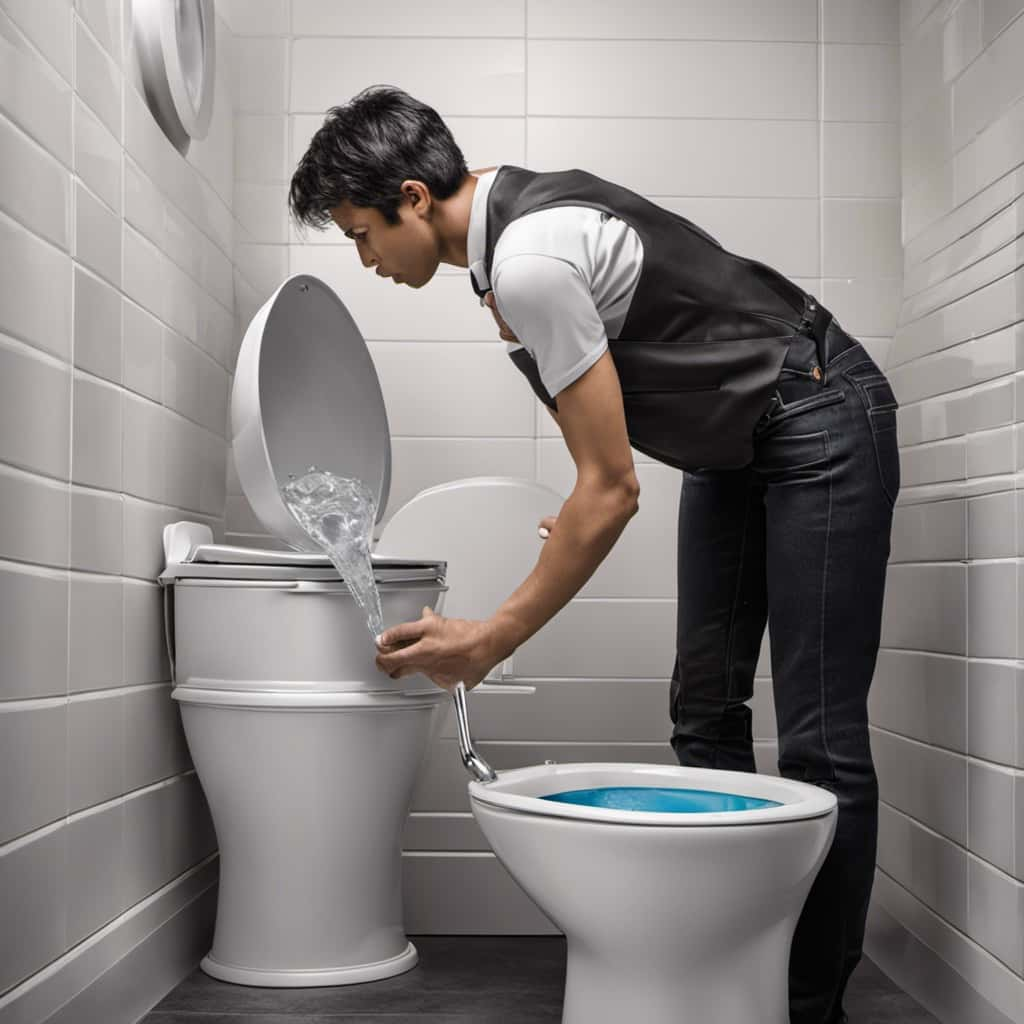
Conclusion
In conclusion, it’s imperative to exercise proper toilet etiquette and refrain from flushing items down the toilet. Doing so can lead to clogged pipes, costly repairs, environmental pollution, and potential health hazards.
By adhering to these guidelines, we can ensure the smooth functioning of our plumbing systems, avoid unnecessary expenses, and contribute to a cleaner and healthier environment for all.

